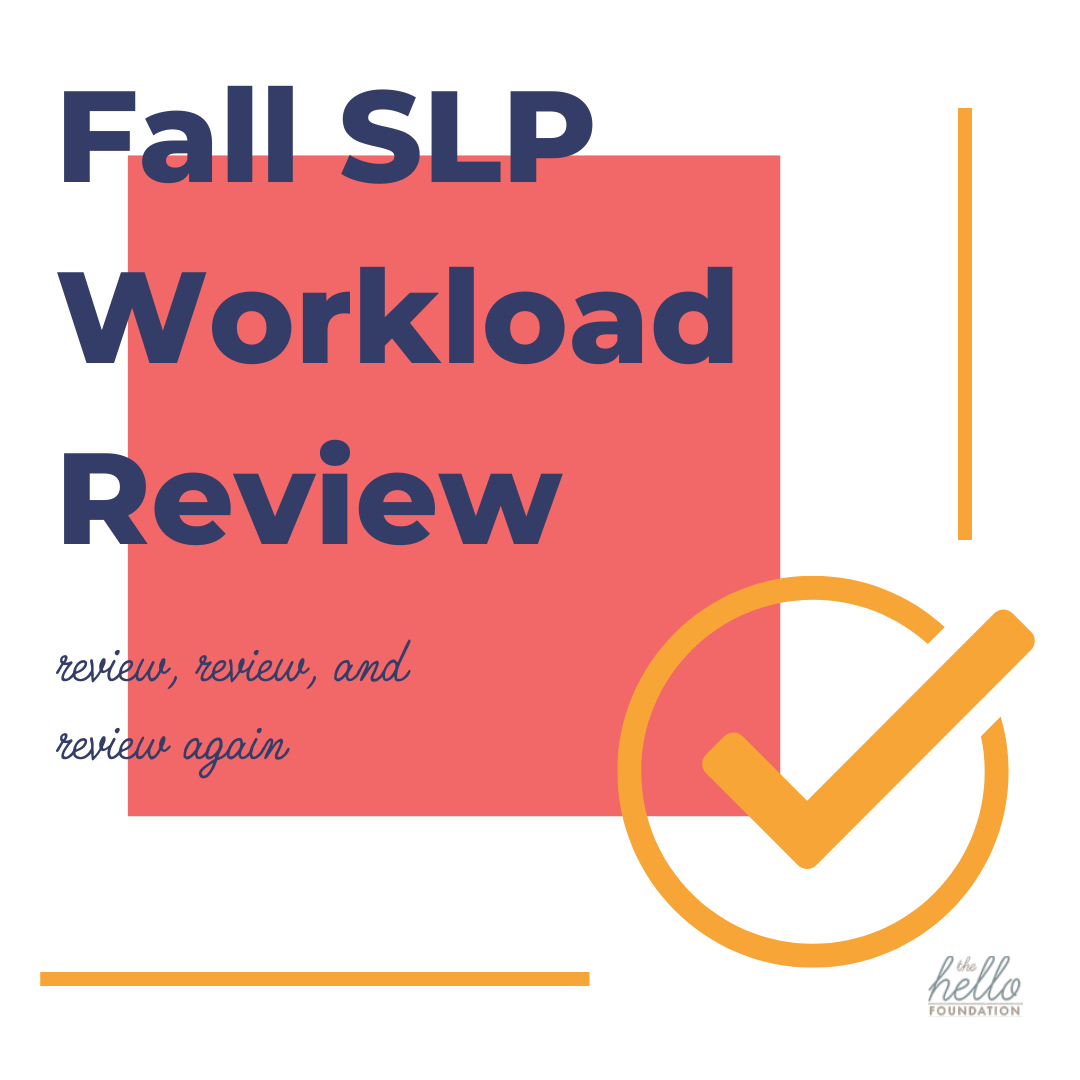Here it is. October. Whether you started this fall in a brand-new-to-you placement or settled into a new year in a familiar place, by mid-October, you’ve got a pretty good idea of your workload, your team members, and your resources. But sometimes, things haven’t come together so seamlessly. Sometimes, the drowning feeling makes you pretty sure something has to change. But how to figure out what? Well, it turns out that this predicament of an unmanageable workload is not altogether uncommon. Here’s what I recommend for a fall SLP workload review:
Take stock
What is actually on your plate? Set aside 20 minutes to do a total brain dump of everything you’re responsible for right now. Another approach is to take a week and keep a running list, adding to it each day as things pop up. It can be cathartic (or overwhelming) to list it all out, but there is a peace that comes with organizing and categorizing the chaos.
Put things in order
Take that list and take a good long look at it. Have you been explicit in setting priorities? Some things have to get done before others. Some things are important to you, others might be important to your boss or your co-workers. What are the things that aren’t getting done? Is that purposeful? Are those the best things not to get done? If this task in and of itself feels tough, check out this post and try one of the prioritization methods that they discuss.
See how it fits
I am not a good judge of how long a task will take me. I find that some things take much longer than I’d imagined — when you add up all the tasks required to dismiss a student from speech services, it’s more than you’d think! Other tasks don’t take as long as I think they will — that phone call I’d been putting off? It only took a minute. Take a week and make some notes about how you are actually spending your time, what things happen and what things don’t.
Talk it out
My first instinct when my work bogs me down is to lower my head and plow forward, hoping to get to the other side. But when I’m at a job where the workload clearly does not match the time allotted to work on it, I know I’ve got to employ other strategies:
- Find a colleague to take a look. Sometimes a second set of familiar eyes can see things you don’t.
- Let others know. If there are things that are not getting done, make sure your supervisors or colleagues are aware. Let your supervisors know how you’ve prioritized things and show them what is and is not being completed. It could be that their priorities are different than yours. The important thing is to find out what should be on the top of the list if you have to decide what gets done and what doesn’t. And here are 3 tips for talking so your school administrator will listen, just in case you need them.
Take care of yourself
No job should keep you from maintaining your health, a sleep schedule, and a life separate from work. As school-based SLPs, we have the opportunity to touch lots of kids and teachers, and families over our career, but burning out after a year or two serves far fewer. Self-care is not the answer to preventing burnout, but it is an essential component of being an effective member of our work and home communities.
Review . . . Again
As it turns out, this process is harder to implement than it sounds. This is proven by the number of times we find ourselves blogging about it (here, here, here!), and the fact that even as I write this, there are adjustments I can make to managing my own workload. Keep at it! I find I learn and improve each go-around. And with the experience I gain each time, I can be more helpful to others.
This post was last updated 9/29/22






